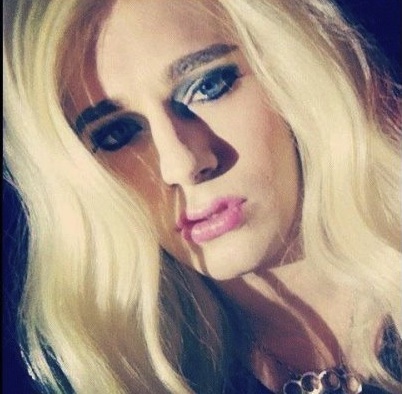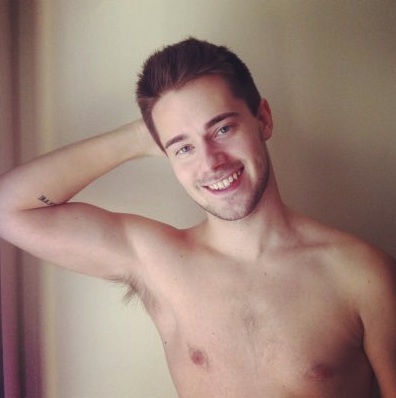I may owe Chris Crocker an apology. Or at the very least, applause.
In 2007, when Crocker debuted his video of “Leave Britney Alone,” I was annoyed by the sensation this video caused. Here was someone who was chasing “celebrity” via an online meltdown.
Really? This was the new celebrity?

I shrugged it off as a pop culture glitch, ignoring the video and the onslaught of memes based on it. But video blog posts and the reactions surrounding them, as well as the rise of the “viral” video phenom, have become part of pop culture, rather than incongruous blips.
A few months ago, I read about how Crocker was still cultivating an online presence, had shorn his locks and was even producing porn on his own Tumblr (link NSFW). Interesting. But again, I didn’t really care.
Until today, where I read an interview with Crocker. Here is where I would like to acknowledge that I underestimated him.

Crocker is presented in the interview as someone who is articulate and intelligent, with a keen awareness of the dynamics of being an “online celebrity.” He acknowledges that he played the fame game for what it was worth but that in the end, all he did was be himself, without apologies.
But this is not why I think Crocker deserves applause: it’s because of the way he talks about ideas around gender and gender expression. In the interview he states:
“People usually ask me something really simple-minded like “So you’re a man now?” and they want it to be this really simple answer. And the real answer is that I don’t feel like just a man or just a woman. I feel really comfortable with both the feminine and masculine sides of myself. Actually, the owner of the club I’ve been going to for years here [in Tennessee] recently asked me, “So which do you feel more comfortable as?” And I said, “I really feel equally comfortable — it just depends on my mood.”
This was not what I expected to hear from someone who is known for having a public meltdown about a bubblegum princess. Crocker even goes on to discuss the problems he encountered within the gay community around the way he expressed himself and his gender.
“The gay on gay hatred or the gay on gay discrimination is what I find so puzzling. When other queer people say, “If you were really transsexual…” — because I lived as a girl for three years and people ask, “Was that all an act?” That’s the biggest thing that I get disgusted by. It’s like, “Oh, really? That was all an act? I would go through all that trouble for three years — using women’s bathrooms, problems in airports?” No. I wouldn’t.”
And that’s where he nails it. Crocker is an individual who wishes to express himself in a way he sees that fits him and his gender identity, no matter what that may be. He espouses a more fluid form of gender expression, and more to the fact, he is conscious of the difficulties that he encounters. He knows it won’t be easy for others to understand or accept him, yet he does these things because of an inherent need or desire to express himself in a manner that speaks to his truth.
Crocker even believes in taking responsibility for his image, explaining that would be a poor role model for youth.
I don’t like to consider myself a role model because of my life choices. I’ve been lucky that being an outcast all my life has worked out for me because I got to capitalize in a way on expressing myself. I don’t want to consider myself a role model for kids to drop out of school in the 8th grade and go and do YouTube videos or do porn down the line. But if people look up to me to be brave enough to be themselves, then I’m comfortable with that. But I don’t want them following in my footsteps.
Whether or not any of those choices are good examples for youth to follow is neither here nor there, but this is a side of individuals who live in the public eye that we don’t often see: don’t necessarily do as I do, and if you do, understand the consequences.
I think Crocker does understand the consequences. Who knows, he may even be wary of them. But he faces them with aplomb, something that is rare in this day.
So kudos to you, Chris. I’m sorry if I misjudged you.

 Why you can trust Xtra
Why you can trust Xtra


